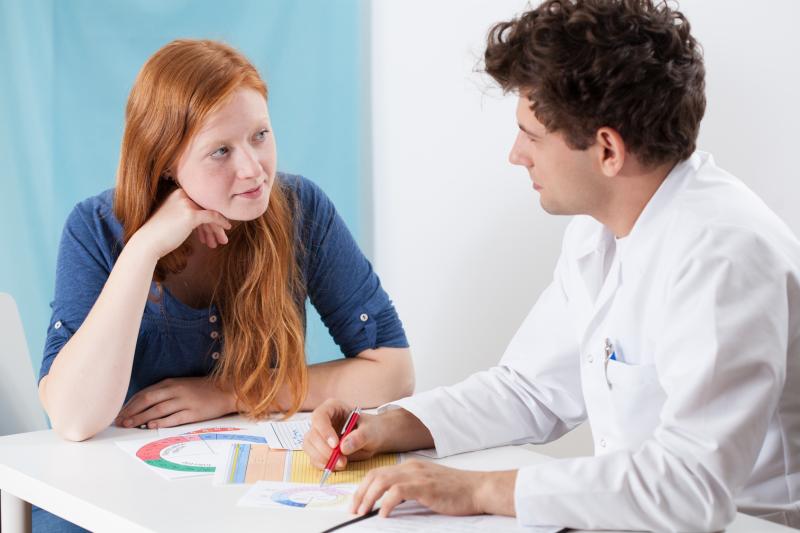
Low serum prolactin levels may spell trouble for women, with a recent study linking hypoprolactinemia to impaired sexual functioning and well-being. Specifically, libido and arousal wane, and mild depressive symptoms ensue.
Researchers examined three age‐matched groups of young women with normal, regular menstrual cycles: 15 of those with cabergoline‐induced hypoprolactinemia (group A), 25 cabergoline‐treated individuals with prolactin levels within the reference range (group B), and 30 dopamine agonist‐naïve women with normal prolactin levels.
Because of low prolactin levels, the dose of cabergoline in group A, but not in group B, was reduced. Nevertheless, doses did not significantly differ between the two group at baseline (1.24 vs 1.12 mg weekly) and throughout the 6-month follow-up (0.95 vs 1.12 mg weekly).
There were no baseline differences between the groups in age, body mass index, smoking, physical activity, education, occupational activity, type of work, number of sexual partners, number and duration of marriages, number of deliveries and miscarriages, stress exposure, as well as systolic and diastolic blood pressure.
At baseline, the total female sexual function index (FSFI) and all domain scores, as well as the Beck Depression Inventory-II (BDI-II) score, did not differ between groups B and C. In comparison, group A had lower total FSFI score and domain scores for desire and arousal, and higher BDI‐II score.
Compared with those in groups B and C, women with cabergoline‐induced hypoprolactinemia also had lower total testosterone levels and lower values of the free androgen index.
The observed disturbances were reversed when cabergoline dose was reduced and prolactin levels subsequently returned to the reference range. Sexual drive and arousal returned to normal, and mood improved.
The researchers pointed out that the disturbances may have resulted from lactotrope hypofunction, but not from specific properties of cabergoline.